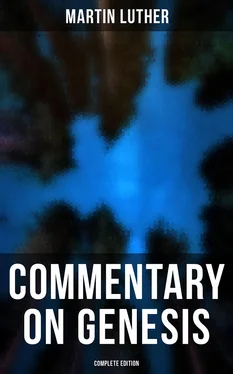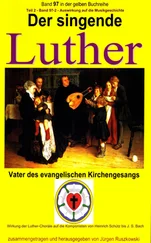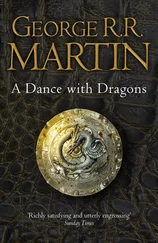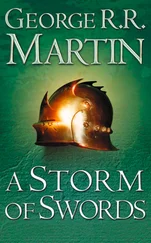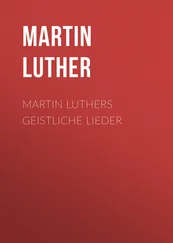Martin Luther - Commentary on Genesis (Complete Edition)
Здесь есть возможность читать онлайн «Martin Luther - Commentary on Genesis (Complete Edition)» — ознакомительный отрывок электронной книги совершенно бесплатно, а после прочтения отрывка купить полную версию. В некоторых случаях можно слушать аудио, скачать через торрент в формате fb2 и присутствует краткое содержание. Жанр: unrecognised, на английском языке. Описание произведения, (предисловие) а так же отзывы посетителей доступны на портале библиотеки ЛибКат.
- Название:Commentary on Genesis (Complete Edition)
- Автор:
- Жанр:
- Год:неизвестен
- ISBN:нет данных
- Рейтинг книги:4 / 5. Голосов: 1
-
Избранное:Добавить в избранное
- Отзывы:
-
Ваша оценка:
- 80
- 1
- 2
- 3
- 4
- 5
Commentary on Genesis (Complete Edition): краткое содержание, описание и аннотация
Предлагаем к чтению аннотацию, описание, краткое содержание или предисловие (зависит от того, что написал сам автор книги «Commentary on Genesis (Complete Edition)»). Если вы не нашли необходимую информацию о книге — напишите в комментариях, мы постараемся отыскать её.
Commentary on Genesis is the last work of Martin Luther, written during the last several years of his life. Luther's work follows the first volume of Psalms with critical and devotional remarks on the creation and on sin and the flood.
Commentary on Genesis (Complete Edition) — читать онлайн ознакомительный отрывок
Ниже представлен текст книги, разбитый по страницам. Система сохранения места последней прочитанной страницы, позволяет с удобством читать онлайн бесплатно книгу «Commentary on Genesis (Complete Edition)», без необходимости каждый раз заново искать на чём Вы остановились. Поставьте закладку, и сможете в любой момент перейти на страницу, на которой закончили чтение.
Интервал:
Закладка:
Now all varieties of flesh do not satisfy man, nor all kinds of pulse nor all kinds of grain. We continually endanger the health of our bodies by a surfeit of food. I say nothing now of those worse than beast-like sins, which are daily committed among us by an excessive use of meat and drink. All this is evidently the curse of God, which has followed upon original sin and has continued until now. And I believe also that venomous and noxious beasts and reptiles first came out of the earth as accursed for the sin of man.
But here a question may arise, how we are to reconcile the apparent discrepancy that all the trees in the field are given to Adam to enjoy, and yet that afterwards a signal part of the earth, which the Scriptures call paradise, is assigned to him to till? Another question may be, whether the whole original earth may be called paradise? etc., etc. But these things we will leave to our meditations upon the second chapter.
III. V. 31. And God saw everything that he had made, and behold it was very good. And there was evening and there was morning the sixth day.
After God had thus finished all his works, he here speaks after the manner of one fatigued, as if he had said, "Behold I have now prepared all things for man with all perfectness. I have prepared for him the heaven as his canopy and the earth as his floor. His possessions and his wealth are the animals with all the productions of the earth, the sea and the air. The seeds, the roots and the herbs of the garden are his food. Moreover I have made man the lord of all these things. And he possesses the knowledge of me his God, and the use of all the animals which I have created, all of which he can use as he will with the greatest security, righteousness and wisdom. Nothing is wanting. All things are created in the greatest abundance for the sustaining of animal life. Now therefore I will rest! I will enjoy a Sabbath!"
But these things are almost wholly lost by sin, and we are at this day like a carcass as it were of the first created man Adam; and we retain but a shadow of the dominion which he possessed. Shall we not say then that he has lost all things, who out of an immortal is become a mortal, and out of a righteous man, a sinner? Out of one accepted of God and grateful to God, cast off and condemned of God? For now man is a sinner and mortal. If therefore these things do not, under divine teaching, stir us up to the hope and expectation of a better day and a better life to come, there is nothing that can stir us up to such hope and expectation. Let these comments suffice for an explanation of this first chapter of the book of Genesis. In the following chapter Moses teaches us the nature of the work of this sixth day; how man was created.
Chapter II.
Table of Contents
Part I. God's Rest, Sanctification of the Sabbath and Creation of Adam
Table of Contents
I. V. 1. And the heavens and the earth were finished, and all the host of them.
Our Latin rendering of the text before us is "and all the adornment of them." In the original Hebrew the expression is ZEBAAM, the "host" or "army" of them. The prophets have retained this same form of speaking and of calling the stars and the planets, "the host or army of heaven," as Jer. 19:13, where the Jews are represented as having adored "all the host of heaven." And God says by the prophet Zephaniah, "I will cut off them that worship the host of heaven upon the housetops." In the same manner also Stephen testifies concerning the children of Israel in the wilderness that God "gave them up to worship the host of heaven," Acts 7:42.
The prophets borrowed these forms of speech from Moses, who in this passage calls the stars and other luminaries of heaven by a military term, calling them the host or the warning army of heaven. After a similar mode of expression he calls men beasts and trees the host or army of the earth. Perhaps this is in anticipation of the solemn realities that were to come. For God afterwards calls himself also the God of hosts or of armies; that is, not of angels and of spirits only, but of the whole creation also, which was for him and serves him. For ever since Satan was cast off by God for sin he has been filled with such desperate hatred of God and of men that he would, if he could, in one moment empty the sea of all its fishes and the air of all its birds, strip the earth of all its fruits and utterly destroy all things. But God has created all these creatures that they may be a standing army as it were; that they might fight for us and our subsistence against the devil and against men also, and thus serve us and be to us an unceasing benefit.
V. 2. And on the seventh day God finished his work which he had made; and he rested on the seventh day from all his work which he had made.
Here cavillers raise a question of this nature: Moses says that God "rested on the seventh day from the work he had made;" that is, that he ceased on the seventh day to work: while Christ says on the other hand, John 5:17, "My Father worketh hitherto, or until now, and I work." The passage contained in Heb. 4:3, helps to explain the present text, where it is written, "If they shall enter into My rest," not indeed into the land of promise, but into "My rest."
My simple and plain reply to the above question is, that a solution of any difficulty that may be raised is furnished by the present text itself, when it says, "Thus the heavens and the earth were finished." The Sabbath or rest of the Sabbath here signifies that God so rested, as not to have any further design of creating any other heaven and earth. It does not signify that God ceased to preserve and govern the heaven and the earth, which he had now created and finished.
Concerning the manner of the creation Moses gives us the fullest information in the preceding chapter, that God created all things by the Word! "Let the sea bring forth fishes;" "Let the earth bring forth the green herb, the beast," etc., etc. And by the same Word, God also said, "Be fruitful and multiply and replenish the earth." Now all these words of God remain unto this present day. And therefore it is that we see the multiplication of all these creatures go on without cessation or end. Wherefore if the world were to last for a number of years endless and infinite, the power and efficacy of these words would never cease, but there would still be continued a multiplication of all these creatures perpetual and endless by the mere infinite power of this Word of God; this Word of the first creation and foundation of all things, if I may so express the original and originating Word.
The solution of the question now under consideration therefore is easy and plain. "God rested on the seventh day from the work which he had made;" that is, God was content with the earth and the heaven which he had created by the Word. He created not nor intended to create new heavens or new earths, nor new stars nor new trees. God nevertheless still works. He "worketh hitherto," as Christ says above. He forsakes not nature, which he once made "in the beginning;" but he preserves and governs it to this day, by the power of his Word. He has ceased from his creation-work, but he has not ceased from his government-work. The human race began in Adam. In the earth began by the Word the animal race, if I may so speak; in the sea, the race of fishes; and in the air, the race of birds. But the human race did not cease in Adam, nor did all other races cease in the first created animals of their kind. The Word originally spoken upon the human race still remains in all its power and efficiency. The word, "Be fruitful and multiply," ceases not nor ever will cease, nor the words, "Let the sea bring forth fishes," nor "Let the earth bring forth beasts and the air birds." The omnipotent power and efficacy of the original Word still preserves and governs the whole creation.
Читать дальшеИнтервал:
Закладка:
Похожие книги на «Commentary on Genesis (Complete Edition)»
Представляем Вашему вниманию похожие книги на «Commentary on Genesis (Complete Edition)» списком для выбора. Мы отобрали схожую по названию и смыслу литературу в надежде предоставить читателям больше вариантов отыскать новые, интересные, ещё непрочитанные произведения.
Обсуждение, отзывы о книге «Commentary on Genesis (Complete Edition)» и просто собственные мнения читателей. Оставьте ваши комментарии, напишите, что Вы думаете о произведении, его смысле или главных героях. Укажите что конкретно понравилось, а что нет, и почему Вы так считаете.
